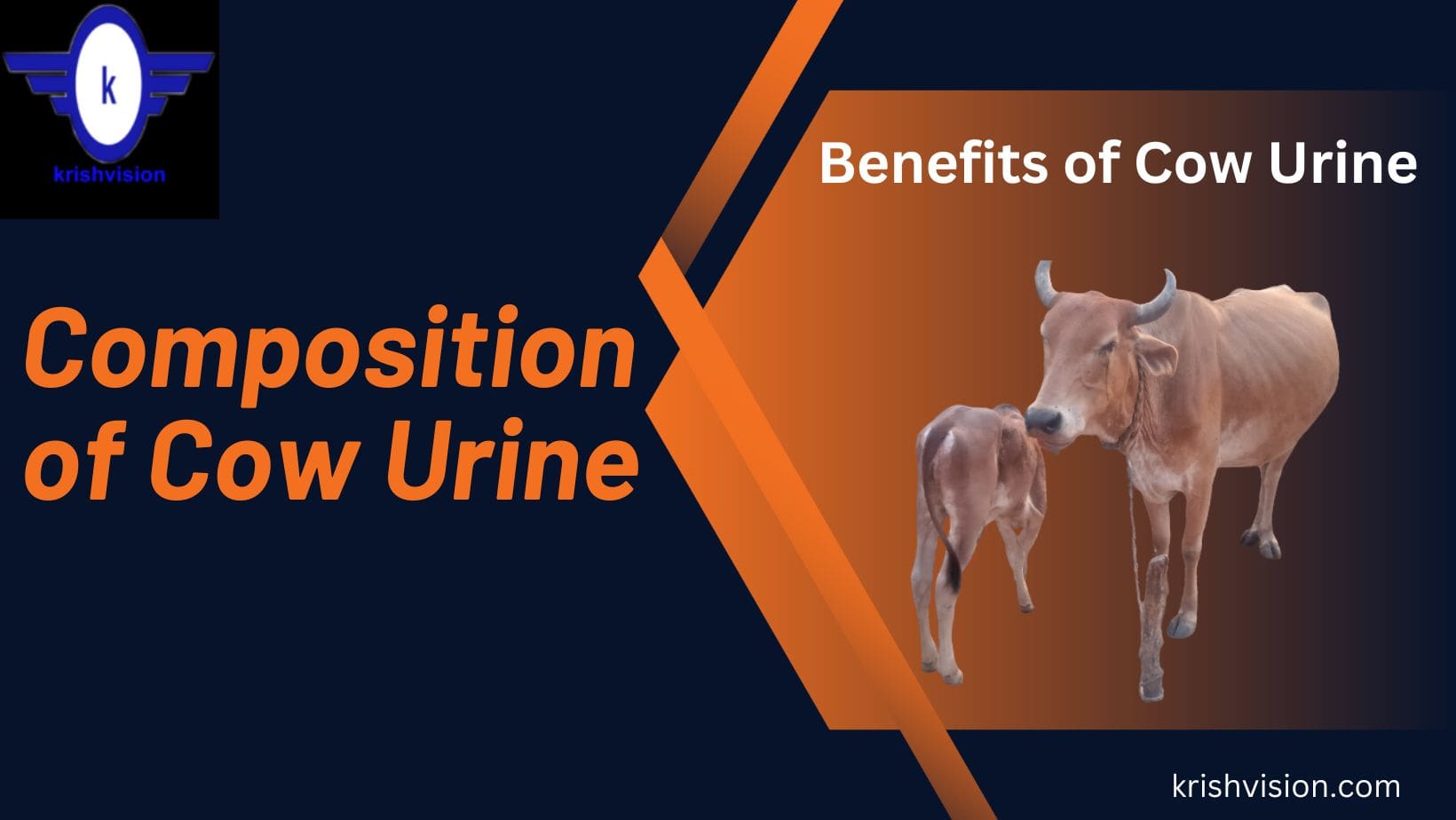
In natural remedies and holistic health, cow urine has emerged as a subject of growing interest. While the idea of using cow urine may seem unconventional to some, it has been a part of traditional Ayurvedic medicine for centuries. This age-old elixir, known as “gomutra” in Sanskrit, has recently garnered attention for its potential health benefits.
Magical Benefits of Tratak Meditation
In this article ” Benefits of Cow Urine“, we’ll delve into the fascinating benefits of cow urine and uncover its remarkable properties. We’ll discuss its historical significance and composition and how it has found its way into various aspects of our lives. So, let’s embark on this enlightening journey together.
krishvision.com: Where every click leads to a new world of wonder
How to start a YouTube channel and make money
Benefits of Cow Urine
Technology Skills for Kids and Teens
Step-by-Step Car Decoration Guide for Beginners
Search Engine Optimization: Beginner’s Guide to SEO Mastery
Skyrocket Your Website’s Success with an Effective SEO Audit Checklist
Historical Significance

Throughout history, various ancient texts from cultures such as India have documented the utilization of cow urine for its unique properties. In Ayurvedic texts, which date back thousands of years, cow urine is mentioned as a valuable ingredient in medicinal formulations. These texts describe its potential benefits in treating a wide range of health issues, from digestive problems to skin ailments. Cow urine was considered a vital component of holistic health practices in these ancient civilizations.
Practice of Bindu Tratak – A Complete Guide
Cow urine holds deep religious significance in several cultures, particularly in Hinduism. The cow is revered as sacred in Hinduism, and its urine is believed to possess purifying properties. In religious rituals and ceremonies, cow urine is often used to cleanse idols, temples, and even the human body. Its symbolic purity has made it an integral part of Hindu religious customs, and it continues to be a symbol of divinity and spirituality in these traditions.
Cow urine has been employed in traditional medicine systems, including Ayurveda and traditional Chinese medicine, for its potential therapeutic properties. It is believed to have antibacterial, antifungal, and antioxidant qualities. In some regions, it has been used to treat conditions such as jaundice, diabetes, and skin diseases. While modern scientific research on these claims is ongoing, the historical use of cow urine in traditional medicine highlights its importance in ancient healing practices. Cow urine has played a significant role in ancient cultures, as it was embraced for its unique properties in the realms of medicine, religion, and traditional healing practices.
Explore, enlighten, and excite your mind with krishvision.com’s diverse array of articles
- How to start a YouTube channel and make money
- Technology Skills for Kids and Teens
- Search Engine Optimization: Beginner’s Guide to SEO Mastery
- Skyrocket Your Website’s Success with an Effective SEO Audit Checklist
- The Ultimate Guide to Buying Raincoats Online
- Local SEO Services for Businesses
- Social Media Marketing for Startups
- Digital marketing tips and tricks
- SEO Strategies for Small Business Success
- Which Option Is Not Available in Microsoft Office Button?
- Transform Your Home with Green Living
- How to Become a Computer Expert
- The journey toward a peaceful life
- Challenges in Teaching Profession
- How to prepare for an interview as a fresher
Composition of Cow Urine

Cow urine is a complex liquid with a composition that includes a variety of organic and inorganic compounds. Here are some of the key components typically found in cow urine:
How to Practice Tratak on Flame
- Water: Like most bodily fluids, cow urine is primarily composed of water, making up a significant portion of its content.
- Urea: Urea is a natural waste product found in urine, and cow urine is no exception. It is a nitrogenous compound and contributes to the urine’s characteristic odor.
- Uric Acid: Uric acid is another nitrogenous compound present in cow urine, formed as a result of protein metabolism.
- Ammonia: Ammonia is a byproduct of the breakdown of urea. It gives urine its alkaline pH and plays a role in its characteristic smell.
- Creatinine: Creatinine is a waste product produced by muscle metabolism.
- Minerals: Cow urine contains various minerals, including salts of sodium, potassium, calcium, and magnesium.
- Enzymes: Enzymes are present in cow urine and can have potential enzymatic activities that contribute to its medicinal properties.
- Vitamins: Small amounts of vitamins such as vitamins A, B, and C have been reported in cow urine.
- Organic Acids: Cow urine may contain organic acids like citric acid and oxalic acid, which can influence its pH and chemical properties.
- Amino Acids: Some amino acids, the building blocks of proteins, are found in cow urine.
- Phenolic Compounds: Cow urine has been found to contain phenolic compounds, which are known for their antioxidant properties.
- Alkaloids: Some alkaloids, naturally occurring organic compounds with potential medicinal properties, have been reported in cow urine.
Benefits of Cow Urine

Cow urine, known as “gomutra,” has gained recognition for its numerous benefits due to the presence of several useful elements. These elements make cow urine extract highly valued. Let’s focus on component-wise benefits found in cow urine from desi cows:
- Urea: Urea, a vital element in urine, is the end product of the protein digestion process. It possesses potent antibacterial properties.
- Uric Acid: Similar to urea, uric acid also boasts powerful antibacterial properties. Additionally, it aids in controlling cancer-causing elements.
- Minerals: Cow urine contains metals that can be more readily reabsorbed compared to metals from food sources. It may include various types of metals from food items. When urine is left standing, it can become cloudy because the enzymes in urine dissolve and transform into ammonia. Due to the alkaline nature of urine, major minerals do not dissolve in it, causing it to appear cloudy. This does not mean the urine is no longer beneficial. Ammonia-rich urine can enhance the skin’s appearance when applied topically.
- Urokinase: Urokinase is known for dissolving clotted blood, aiding in heart disorders, and improving blood circulation.
- Epithelium Growth Factor: This component helps in repairing and regenerating damaged cells and tissues.
- Colony Stimulating Factor: Effective in cell division and multiplication.
- Growth Hormone: Plays a crucial role in various biological functions such as promoting protein production, cartilage development, and fat formation.
- Erythropoietin: Promotes the production of red blood cells.
- Gonadotropins: Encourage the normalization of menstrual cycles and sperm production.
- Kallikrein: The release of Kallikrein leads to the dilation of peripheral veins and a reduction in blood pressure.
- Trypsin Inhibitor: It is effective in preventing and treating muscle tumors.
- Allantoin: Known for its wound-healing properties and its impact on tumors.
- Anti-Cancer Substances: Various anti-cancer compounds like Anti-neoplastons, H-11 iodoyl-acetic acid, diractin, and 3 ethoxy are distinct from chemotherapy drugs. They effectively inhibit the multiplication of cancer cells and normalize them.
- Nitrogen: This element acts as a diuretic and naturally stimulates the kidneys.
- Sulphur: It increases bowel movements and purifies the blood.
- Ammonia: Ammonia contributes to maintaining the health of body cells and blood.
- Copper: Prevents excessive fat accumulation.
- Iron: Helps maintain the red blood cell count and stabilizes strength.
- Phosphate: It has a lithotryptic action, assisting in breaking down stones.
- Sodium: Purifies the blood and prevents excessive acid formation.
- Potassium: Increases appetite and relieves muscle tension.
- Manganese: Known for its antibacterial properties and providing relief from gas and gangrene.
- Carbolic Acid: An antibacterial element.
- Calcium: Purifies the blood, nourishes the bones, and aids in blood coagulation.
- Salts: These salts possess antibacterial properties and help prevent coma ketoacidosis.
- Vitamins (A, B, C, D, and E): Prevent excessive thirst and provide strength.
- Lactose Sugar: Strengthens the heart, and prevents excessive thirst, and dizziness.
- Enzymes: Improve immunity and promote the secretion of digestive juices.
- Water: Regulates body temperature and maintains blood fluid.
- Hippuric Acid: It aids in the removal of contaminants through urine.
- Creatinine: An antibacterial component.
- Swamakshar: This element is antibacterial, enhances immunity, and acts as an antidote.
Cow urine has been utilized since ancient times, and its significance remains substantial even today. However, it is advisable to seek professional medical advice before considering its use. We would love to hear your thoughts on this article, so please feel free to leave a comment.






